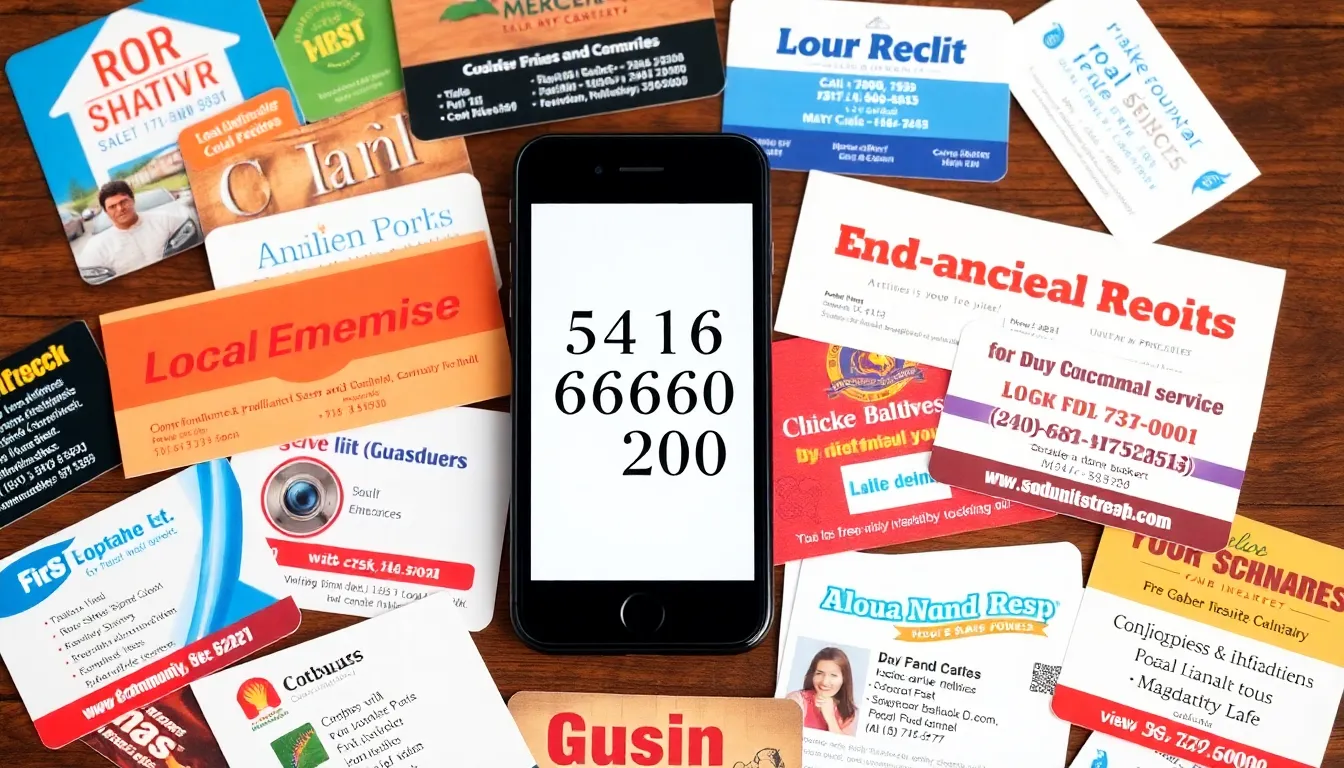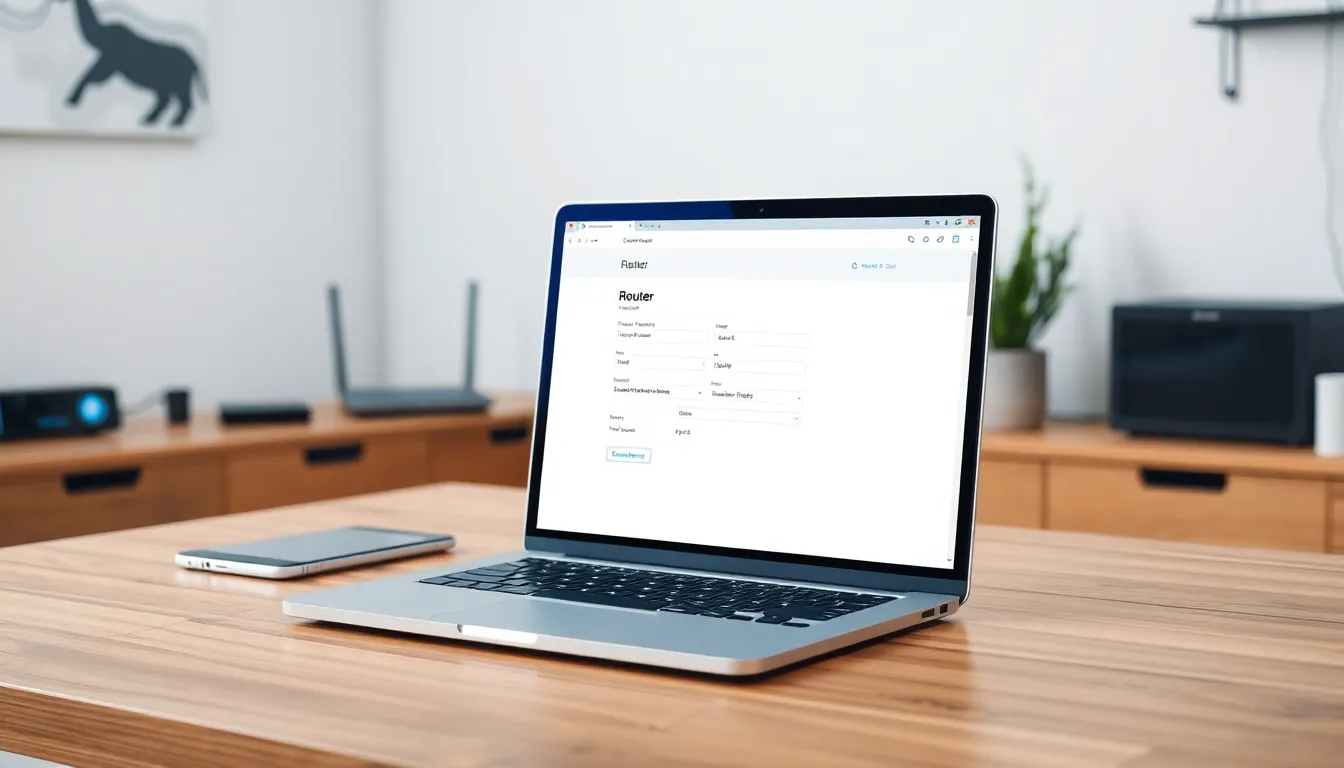Table of Contents
ToggleIn the fast-paced world of software as a service (SaaS), standing out is like trying to find a needle in a haystack—while blindfolded. With countless options available, savvy marketers know that a well-crafted strategy isn’t just helpful; it’s essential. Whether it’s a clever email campaign that tickles the funny bone or a social media post that sparks curiosity, the right approach can turn potential customers into loyal fans faster than you can say “subscription model.”
Overview of SaaS Marketing Strategies
Effective SaaS marketing strategies focus on capturing and nurturing leads through various channels. Content marketing plays a crucial role in establishing authority and trust. Producing blog posts, whitepapers, and case studies attracts potential customers and informs them about your offering’s value.
Email marketing remains vital for engagement. Personalized email campaigns increase open and click-through rates. Segmenting email lists based on user behavior enhances message relevance, driving higher conversion rates.
Search engine optimization (SEO) contributes significantly to visibility. Incorporating targeted keywords improves organic search rankings, helping potential customers discover your service. Consistency in publishing high-quality, SEO-optimized content generates ongoing traffic.
Social media platforms serve as powerful tools for brand awareness. Engaging posts across channels like Twitter, LinkedIn, and Facebook foster community interaction. Utilizing paid social ads enhances reach, targeting specific demographics that align with your ideal customer profile.
Webinars and live demos demonstrate product benefits. Engaging presentations allow potential customers to see the service in action, building confidence in their purchasing decisions. Offering free trials provides firsthand experiences, encouraging sign-ups and user retention.
Referral programs leverage existing customers to attract new leads. Incentivizing referrals creates a win-win situation, as current users benefit while spreading the word about the product. Collaborative marketing efforts with complementary businesses deepen reach and expand audiences.
Focusing on data analytics provides insights into user behavior and campaign performance. Utilizing metrics such as customer acquisition cost (CAC) and lifetime value (LTV) informs marketing strategies, helping to allocate resources effectively. Prioritizing these strategies enhances engagement and increases subscriber loyalty in a highly competitive market.
Importance of SaaS Marketing

SaaS marketing plays a critical role in differentiating products in a crowded market. Engaging potential customers through effective strategies can enhance visibility and growth.
Targeting the Right Audience
Identifying and reaching the right audience ensures marketing efforts yield significant returns. By utilizing tools like customer personas, businesses can tailor messages and products to meet specific needs. Segmenting audiences based on demographics, behavior, and preferences enhances engagement. Leveraging analytics can provide actionable insights into audience behavior and preferences. Companies can improve conversion rates by crafting targeted campaigns and reducing wasted resources.
Building Brand Awareness
Creating brand awareness establishes trust and reliability in the market. Utilizing multiple channels like social media, content marketing, and PR aids in reaching wider audiences. Consistent messaging across platforms strengthens brand identity. Engaging content like blog posts and videos showcases expertise and reinforces credibility. Collaborations with influencers can amplify brand reach. Ultimately, increased brand awareness leads to enhanced customer loyalty and long-term success.
Effective SaaS Marketing Strategies
SaaS marketing thrives on innovative approaches that engage potential customers and build lasting relationships.
Content Marketing Techniques
Content marketing forms the backbone of a successful SaaS strategy. Blog posts can establish authority within a niche while also addressing customer pain points. Whitepapers and case studies present in-depth insights that attract informed prospects. Infographics and videos serve to simplify complex concepts, making them digestible. Regularly updating content keeps the audience engaged and encourages repeat visits, enhancing brand loyalty over time.
Leveraging Social Media
Social media platforms act as dynamic channels for building brand awareness. Engaging posts and interactive content encourage user participation and feedback. Platforms like LinkedIn and Twitter enable targeted outreach, connecting SaaS brands with B2B customers effectively. Consistent interaction fosters community, creating advocates for the brand. Utilizing paid advertising on social media can further boost visibility, driving traffic to landing pages and product trials.
Email Marketing Best Practices
Email marketing remains pivotal in converting leads into loyal customers. Personalized emails tailored to customer interests can significantly enhance engagement. Segmenting email lists based on behaviors or preferences allows for targeted messaging, increasing open and click-through rates. Automated campaigns nurture leads through the sales funnel, delivering relevant information at the right time. A/B testing subject lines and content enhances effectiveness, optimizing future campaigns based on actionable data.
Metrics for Measuring Success
Measuring success in SaaS marketing relies on understanding key metrics. Metrics provide insights into the effectiveness of various marketing strategies.
Key Performance Indicators (KPIs)
Tracking Key Performance Indicators proves essential for gauging success. Monthly recurring revenue measures the predictable income from subscriptions. Customer acquisition cost reflects the total expense required to gain a new subscriber, highlighting efficiency in marketing efforts. Churn rate, the percentage of customers who cancel their subscriptions, indicates customer retention levels and satisfaction. Customer lifetime value estimates the total revenue a business can expect from a customer over the entire duration of their subscription. Each of these KPIs offers vital information that helps in optimizing marketing strategies and improving overall performance.
Analyzing Customer Feedback
Analyzing customer feedback serves as a cornerstone for refining marketing practices. Surveys, reviews, and customer support interactions provide direct insights into user experience. Understanding pain points allows marketers to tailor content and messaging effectively. Consider monitoring net promoter score, a metric that measures customer willingness to recommend the service. Feedback gathered from social media platforms also shows sentiment and engagement trends. Incorporating this feedback into the marketing strategy fosters a customer-centric approach, enhancing satisfaction and long-term loyalty.
Future Trends in SaaS Marketing
Artificial intelligence (AI) is set to revolutionize SaaS marketing strategies. Companies increasingly use AI for personalized experiences, tailoring content to specific user preferences and behaviors. Many businesses leverage machine learning to analyze customer data, predicting future trends and enhancing targeting efforts.
Voice search continues gaining traction, impacting content creation in the SaaS landscape. Organizations optimize their content for voice queries, ensuring visibility in a voice-first world. Implementing clear language and questions will be essential for capturing this growing segment of users.
Video marketing is becoming a primary method for engaging prospects. Webinars and product demos offer interactive experiences, highlighting key features and benefits. Short-form videos on social media platforms capture attention quickly, driving traffic and conversions.
Account-based marketing (ABM) is another trend shaping SaaS strategies. Focusing on high-value accounts allows companies to create customized campaigns that resonate with specific industries. This targeted approach increases the likelihood of closing deals with significant accounts.
Data privacy and security concerns influence SaaS marketing significantly. Transparency in data handling strengthens trust between companies and customers. To address these concerns, businesses prioritize clear communication regarding data practices.
Collaborative marketing gains popularity among SaaS providers. Forming partnerships with complementary brands expands reach and provides value to customers. Joint webinars and co-authored content demonstrate product synergies, fostering customer engagement.
Customer experience remains at the forefront of SaaS marketing trends. Organizations invest in user-friendly interfaces and exceptional service, recognizing that happy customers are the best advocates. Metrics focusing on customer satisfaction guide improvement efforts and drive loyalty.
Staying attuned to emerging trends is crucial for successful SaaS marketing. Embracing innovation allows companies to adapt and thrive in the competitive landscape. Prioritizing these strategies enhances growth potential and cultivates lasting customer relationships.
Navigating the SaaS landscape requires a strategic approach to marketing. By embracing innovative tactics and focusing on customer engagement, companies can effectively stand out in a crowded market. Leveraging content marketing, personalized email campaigns, and social media outreach fosters deeper connections with potential customers.
As trends evolve, staying ahead of the curve with AI integration and data-driven insights will be crucial. Prioritizing customer experience and continuously refining strategies based on feedback ensures long-term success. By implementing these strategies, SaaS providers can build lasting relationships with their audience and drive sustainable growth.





